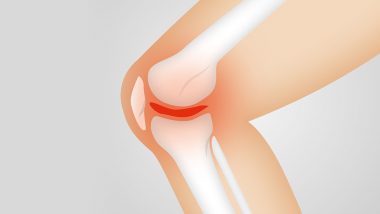Zurich, June 1: This study examined the relationship between individual and combination healthy lifestyle characteristics and the risk of all-cause and cause-specific death among 104,142 osteoarthritis patients using data from the UK Biobank.
The researchers gave each person a score for their lifestyle, based on their body mass index (BMI) and self-reported diet, sleep duration, physical activity, sedentary time, social connection, smoking, and alcohol drinking - all factors thought to be associated with health. World Narcissistic Abuse Awareness Day 2023 Date, Theme & Significance: Who Is a ‘Narcissist’? Everything You Need To Know About This Serious Disorder That Is Often Misunderstood.
Overall, there were 9,915 deaths recorded after the first 2 years' follow-up. Models showed a variety of associations between people's lifestyle and mortality. Sleep duration had a U-shaped relationship, whilst moderate physical activity was L-shaped, and BMI and vigorous activity were J-shaped - a trend that starts with a sharp drop and is followed by a dramatic rise.
For sleep, the ideal seems to be 7 hours a night, whilst the turning point for moderate physical activity was 550 minutes per week, and 240 minutes per week for vigorous physical activity. The J-shaped turning point for BMI was 28 kg/m2. What Is HMPV, Respiratory Virus Spreading Across US? Know Symptoms, Precautions and Treatment for Human Metapneumovirus That Has No Vaccine Yet.
In multivariable models, each lifestyle factor was significantly associated with all-cause mortality, as well as mortality associated with cancer, cardiovascular, digestive, and respiratory diseases.
This study could be important in helping to identify a healthy lifestyle pattern that could significantly reduce the risk of mortality in people with osteoarthritis. Indeed, EULAR has recently published recommendations on lifestyle behaviours and work participation to prevent progression of rheumatic and musculoskeletal diseases, including osteoarthritis.1 The overarching principles define the importance of a healthy lifestyle, how lifestyle modifications should be implemented, and their role in relation to medical treatments.1 It seems now this could possibly benefit mortality as well as disease outcomes.
(The above story is verified and authored by ANI staff, ANI is South Asia's leading multimedia news agency with over 100 bureaus in India, South Asia and across the globe. ANI brings the latest news on Politics and Current Affairs in India & around the World, Sports, Health, Fitness, Entertainment, & News. The views appearing in the above post do not reflect the opinions of LatestLY)













 Quickly
Quickly


